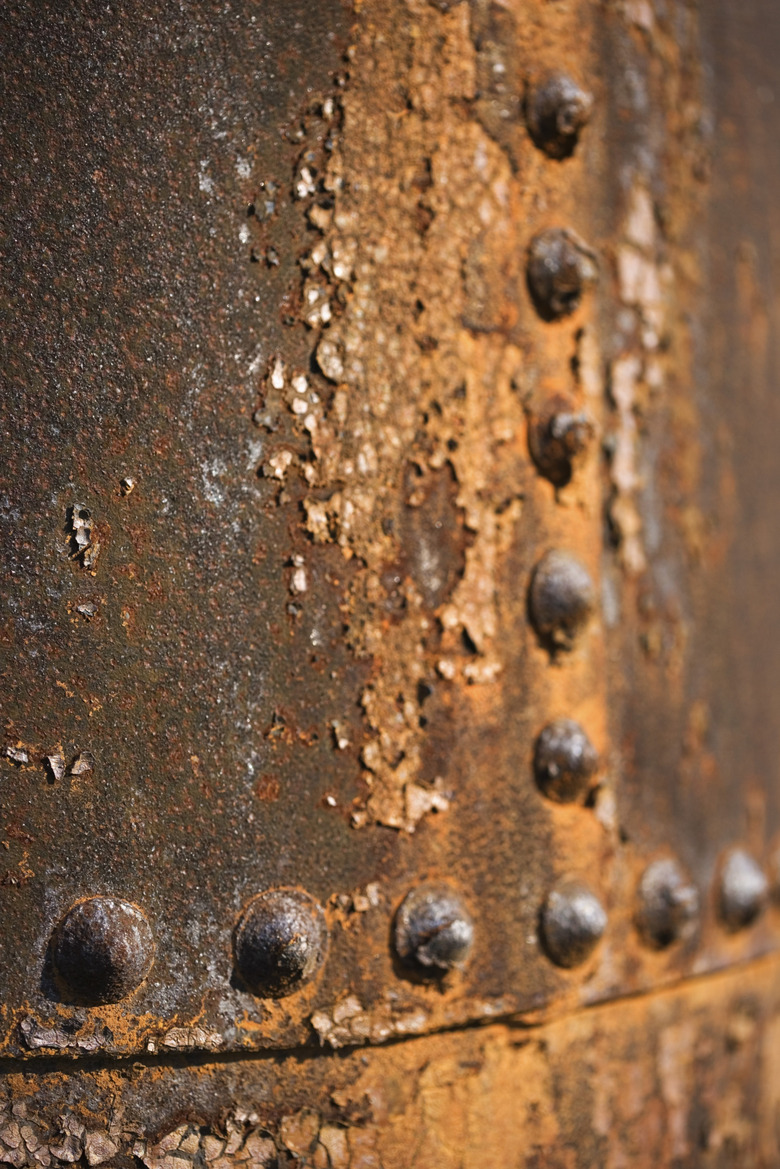What Chemicals Rust Metal Rapidly?
Rust is a chemical reaction that involves the exchange of electrons between atoms; certain chemicals can accelerate rusting by increasing the electrical activity between iron and oxygen. Substances such as salts and acids increase the conductivity of moisture around metal, making rust happen more quickly.
Water
Water
Metals deteriorate quickly in damp environments because moist air provides an ideal medium in which rust forms. A water droplet, in effect, becomes a small battery, allowing ions to move freely between the iron and oxygen. Near the point where the water, iron and air meet, an electrochemical reaction pulls oxygen from the air, forming hydroxide ions in the water. Where metal is covered in water, iron atoms lose electrons, which causes the metal to slowly disintegrate; ionized iron dissolves into the water. In the water, the dissolved iron reacts with the hydroxide ions to form rust.
Salt
Salt
Salt accelerates the rusting process by lowering the electrical resistance of water. Rust happens through a chemical process called oxidation in which metal atoms lose electrons, forming ions. The more easily the electrons flow from iron to oxygen, the quicker the metal rusts. In those states that use road salt during the winter to melt snow, steel car bodies rust more rapidly than in dry desert states.
Bleach
Bleach
The active ingredient in bleach is a chemical compound called sodium hypochlorite. It acts as an oxidizing agent, ionizing other materials by removing electrons from them; this is why it removes stains from clothes and kills germs. The oxidizing properties of bleach accelerate rusting; iron loses electrons more readily in the presence of bleach than in plain water.
Vinegar
Vinegar
Vinegar speeds up rusting because it contains a dilute form of acetic acid; positive hydrogen ions in the acid remove electrons from iron, ionizing it and making it susceptible to rust. Vinegar in water also conducts electricity better than water alone, facilitating the movement of electrons and ions during the rusting process. Although bleach and vinegar both accelerate rusting, do not combine the two, as the mixture releases toxic chlorine gas.
Cite This Article
MLA
Papiewski, John. "What Chemicals Rust Metal Rapidly?" sciencing.com, https://www.sciencing.com/what-chemicals-rust-metal-rapidly-12731440/. 6 February 2014.
APA
Papiewski, John. (2014, February 6). What Chemicals Rust Metal Rapidly?. sciencing.com. Retrieved from https://www.sciencing.com/what-chemicals-rust-metal-rapidly-12731440/
Chicago
Papiewski, John. What Chemicals Rust Metal Rapidly? last modified August 30, 2022. https://www.sciencing.com/what-chemicals-rust-metal-rapidly-12731440/
